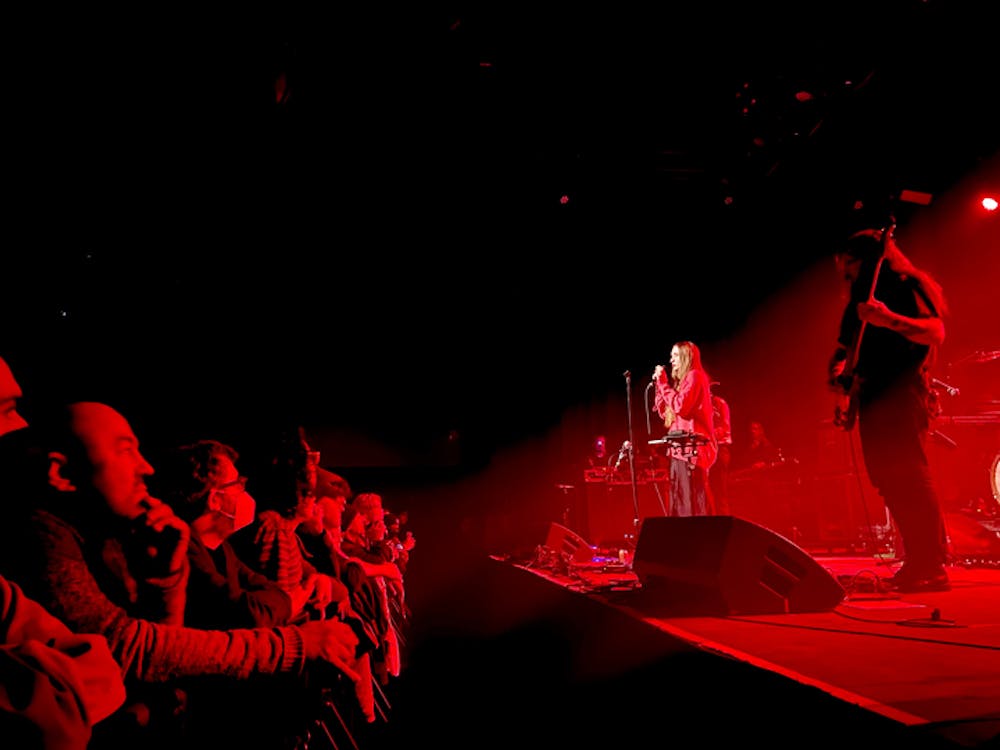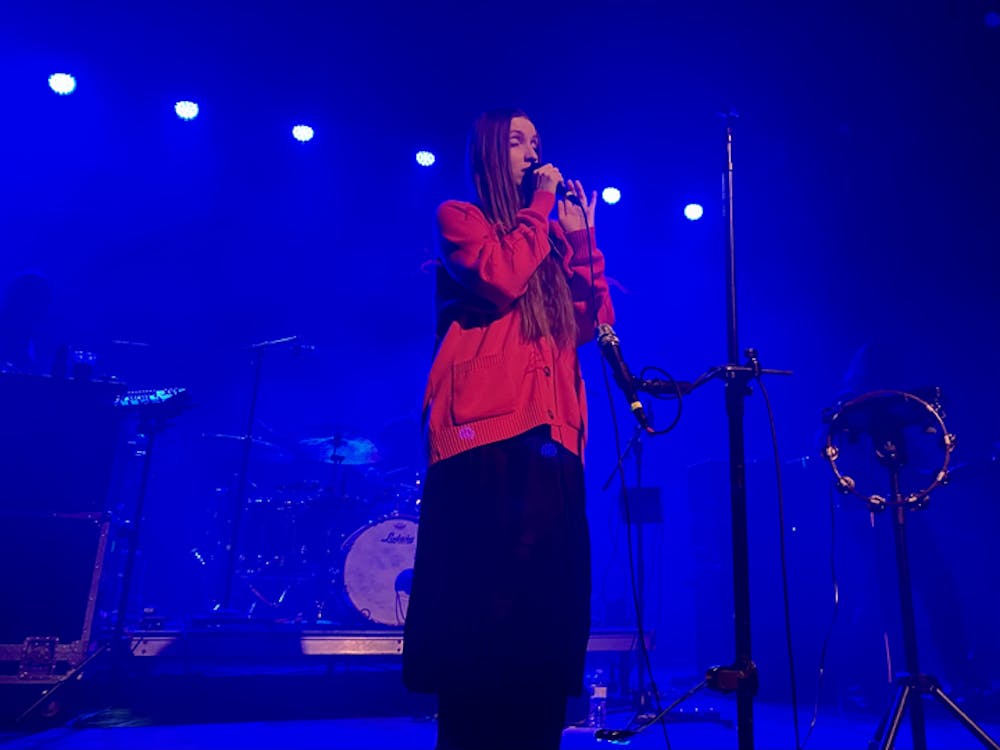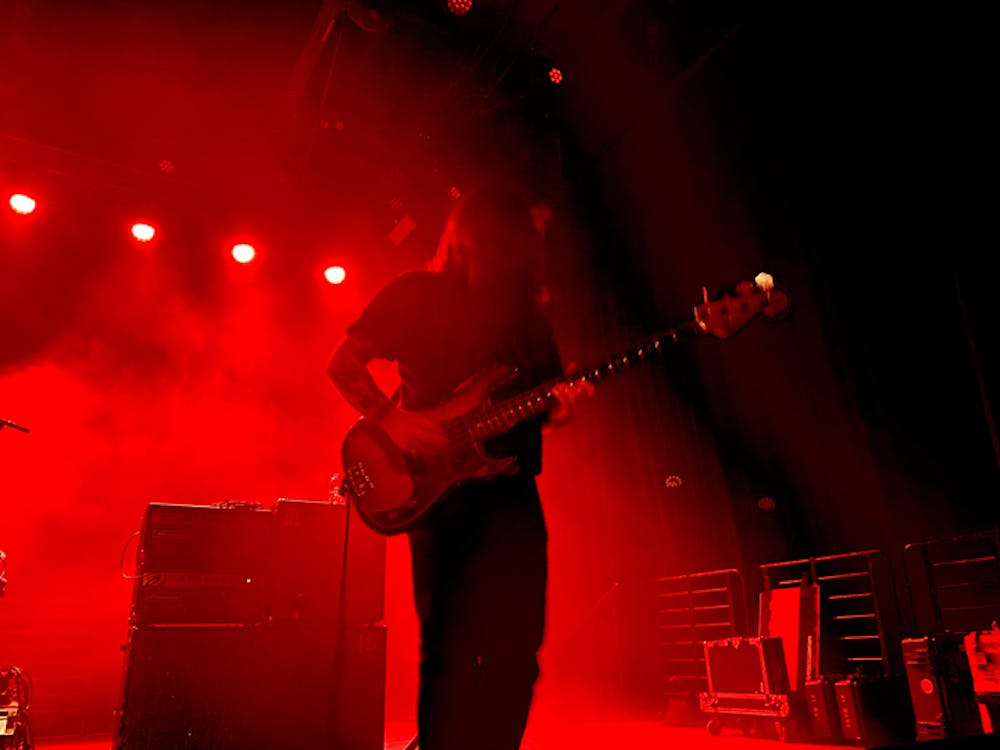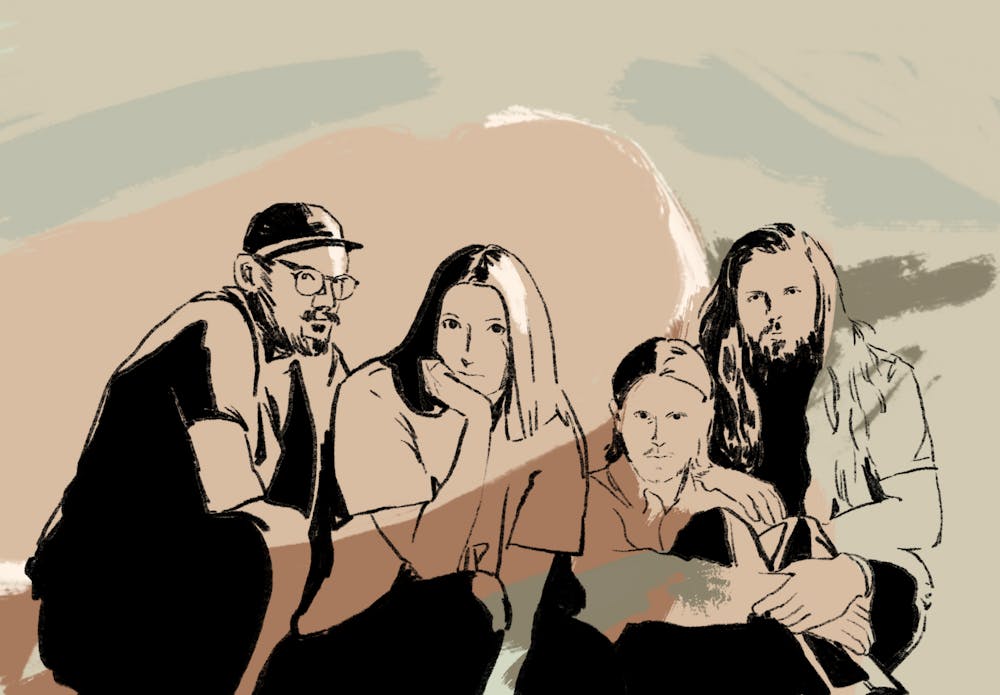As I entered Union Transfer, the demographics of the Wednesday night crowd struck me. Twenty–something women in New Rocks coexisted alongside seventy–something men wearing pullovers, making it the most generationally diverse concert I’ve attended. This universality is unique to this small band from the UK.
British post–punk band Dry Cleaning performed the penultimate concert of their North American tour in Philadelphia this past Wednesday. Their sophomore album Stumpwork was released in Oct. 2022 to an overwhelmingly positive reception. Stumpwork creates a soundscape of British life reacting to pop culture, politics, and the physical world. The band is known for their spoken–word style vocals delivered by lead singer Florence Shaw, who is accompanied by Nick Buxton on drums, Tom Dowse on guitar, and Lewis Maynard on bass.

The night started with a performance by Nourished by Time, the musical creation of Marcus Brown who joined Dry Cleaning for his first ever tour. His performance stood out with its strong bass vibrations, his fluid dance movements, and his smooth voice. Philadelphia–based trio Spirit of the Beehive followed Nourished by Time as the second opener. Dressed in hoodies and jeans, the casual attire of the band members belied their wide–ranging musical abilities. The group had the crowd entranced as they switched from gentle guitar riffs and soft vocals to shouts over a hard drum beat creating a sound best described by a crowd member as “noise psych folk.”

When Dry Cleaning emerged onto the stage, it was Shaw who drew everyone’s eye. Seemingly channeling a past life as a professor of the arts with this outfit, her bright pink cardigan and matching pink lip stood out amongst the muted colors of her bandmates. As she began to sing the first song of the night, her hand gestures annotated every word: fingers flitting out in front of her, a gentle tap on the side of her head, a wagging finger pointed at the crowd. Her somber and reserved delivery of lyrics contrasted with the joy and gratitude in her voice when she addressed the crowd between songs.
Where Shaw’s movements were reserved, her bandmates’ were energetic. Bassist Lewis Maynard thrashed his head, flipping his long hair out in front of him and back as he strummed. Tom Dowse on guitar grooved across stage, sending his shoulders back and forth and giving an occasional spin. Even Nick Buxton, while confined to his drummer’s seat, offered up the movements of a rock star.

At most concerts, fans screaming lyrics, animated dancing, and mosh pits are signs of an engaged crowd. At the Dry Cleaning concert, the crowd showed a different kind of engagement through focused observation, stillness, and small swaying movements. What struck me especially was the lack of phones out, a rarity at a concert nowadays. As part of a generation that grew up on social media, the instinct to record moments of a concert feels extremely natural to most members of Gen Z. It’s easy to overlook how this alters the concert experience until you attend a concert like Dry Cleaning’s where no more than three phones were visible at once. Here, engagement becomes presence rather than documentation.
It was interesting to see how people chose to express themselves while having this embodied experience. To my left, I watched a man of around 60 years old move through an interpretative dance for most of the concert. When Dowse played a guitar solo, instead of wildness breaking out from the crowd, audience members focused their attention and brought about a moment of contemplation. Like any regular concert, however, there were some good natured shouts from the audience of “We love you” and “More please!” A group of guys perched on the balcony could be seen holding up a sign that read “Where is Gary?” on one side, referencing the song “Gary Ashby,” where the narrator searches for their missing pet tortoise.
When Dry Cleaning wrapped up their fifteenth song, they walked off stage quite unceremoniously. As unseasoned tourers, they did perhaps the worst job of selling the end of the concert of any band I’ve ever seen, but I’m happy to write it off as part of their charm. When they came back onstage for the encore, they went into “Liberty Log,” the tenth track off of Stumpwork that comes in at almost seven minutes long. They then closed out the concert with the opening track to Stumpwork “Anna Calls from the Arctic.” The lack of urgency in the encore cemented that Dry Cleaning is not a band pining for a hit or a viral moment. Nor are their fans there to hear one specific song.
Dry Cleaning writes and performs to explore the medium of song as a mode of communicating increasingly complex ideas while retaining, and redefining, musicality. As a witness to their unique contribution to the current music landscape, it's exciting to follow along and see how they continue to shape the post–punk genre.

